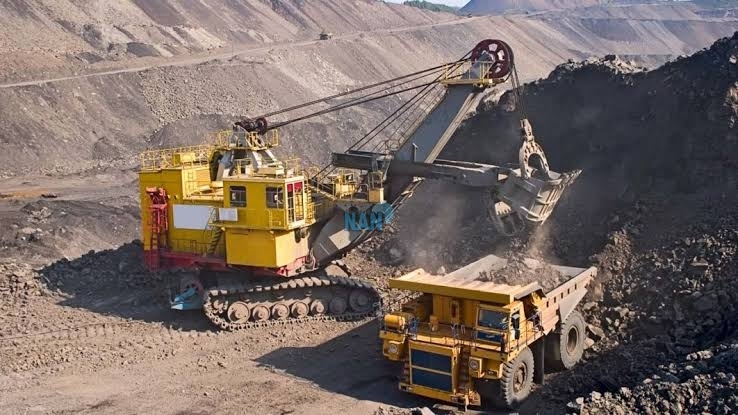The Minister of State for Mines and Steel Development, Sen. Gbemisola Saraki, says the vision of the ministry is to make the mining sector attractive to foreign investors.
Saraki said this on Wednesday in Abuja, at the Nigerian Society of Mining Engineers 21st Annual General Meeting.
The theme of the meeting was “Sustainable Mining in Nigeria: Prospects and Challenges”.
According to the minister, the theme is appropriate at a time when sustainable mining practice is a challenge in the country.
She said that the ministry was working to transform the Nigeria Minerals and Metals sector into an irresistible mining destination for global capital, attracting foreign direct investments to grow the sector to optimum level.
“Our confidence on the realisation of the above vision is predicated on Nigeria’s position as one of the largest economy in Africa.
“With a Gross Domestic Product (GDP) of 514.05 dollars, a population of over 213 million people, over 57 per cent economically active population is endowed with over 44 different minerals resources in commercial quantities,” she said.
Saraki said that the Federal Government strategic policy direction on mining, focused on the some key priority areas, like:
“Streamlining application processes and significantly increasing private sector investment in mining,
“Ensuring orderly and efficient mining of the seven priority minerals in the mining roadmap (Coal, Bitumen, Limestone, Iron Ore, Barites, Gold and Lead/Zinc Ore and now Lithium)
“Strengthening collaboration with State Governments and relevant security agencies to ensure sustainable security and safety of mining areas.
“Introducing incentives to improve the investment climate for mining activities, stamping out illegal mining and formalising artisanal and small-scale mining activities across the country.
“Collaboration with the private sector to create a large number of well-paying jobs for Nigerian youths,” she said.
Saraki said that the expectation of President Muhammadu Buhari from the ministry included diversification of the economy with a target of five per cent contribution to GDP, creating an industry worth 27 billion dollars.
“There is also expectation of job creation with a target of additional new five million jobs, undustrialisation of Nigerian economy with the mineral sector as a major input raw material,” she said.
According to her, the ministry is also expected to achieve export of value added minerals, and poverty reduction and wealth creation.
According to her, the expectations have made the ministry to pursue some critical initiatives for the promotion of mining activities in Nigeria.
She listed the initiatives as bitumen block auctioning, barite mining and processing and bulk mineral haulage and mineral buying centre operations in Nigeria.
She said that there was the need for strict observance of all necessary procedures to protect the miner, host community and the environment while harnessing the resources beneath the earth.
“As members of the global mining community, we must put in place necessary framework in line with international best practice to promote sustainable mining in Nigeria.
“There are referenced standards acceptable globally like the Environment, Social and Governance (ESG) which focuses on people, process and product.
“Other referenced global framework like Responsible Gold Mining principles (RGMP) articulated by the World Gold Council for responsible gold sourcing should be domesticated.
“The available record of about 1,700 abandoned mine sites as at 2020 with more than 700 in Plateau alone speaks volume about sustainable mining in Nigeria,” she said.

















Discussion about this post